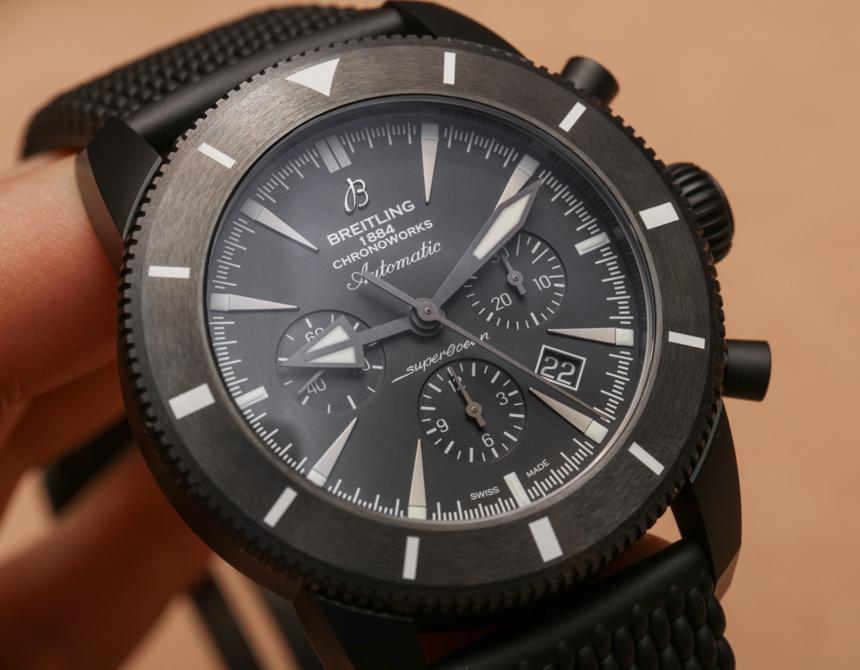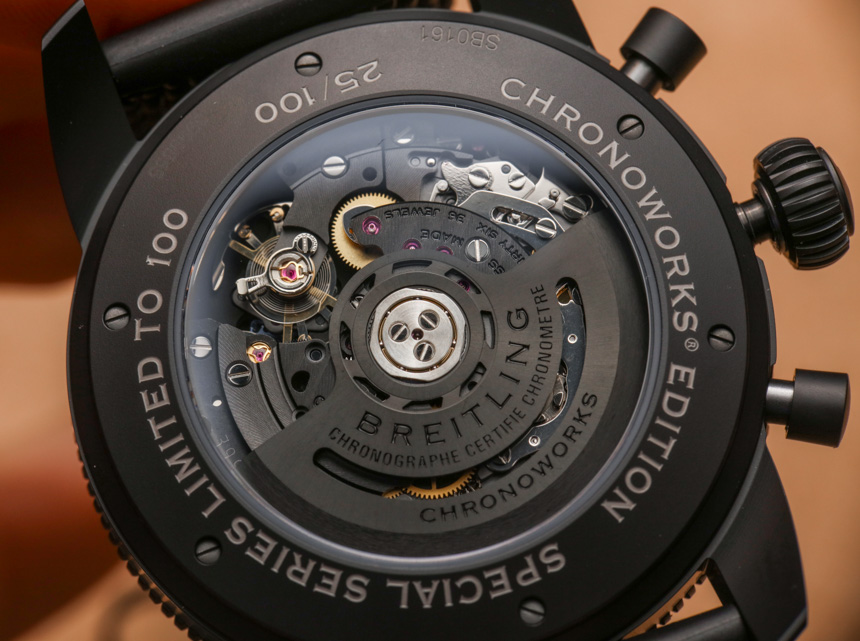The Breitling Superocean Heritage Chronoworks replica watches cost about $40,000. If you haven’t already noticed, pricing doesn’t always seem to make sense in the watch world. There are times when otherwise interesting watches are marred by having retail prices which simply confound the consumer’s sense of reason. Sometimes those prices are actually too high, and other times the prices are fair but the consumer doesn’t understand or appreciate the reason for the high cost. In either event, pricing practices often don’t meld with consumer expectations or perceived values. It is perhaps the biggest “issue” the luxury industry faces, given the highly active watch lover community, and the conversations contained therein, that seek to validate or veto many decisions the watch industry makes.

New homemade machinal movements
At Baselworld 2016, Breitling fake watches shared with us this new “Chronoworks” version of the Superocean Heritage. “Chronoworks” is a term I haven’t heard before from Breitling, and it sounds like their version of a tuning shop where they tweak movements for better performance. In this case, the Breitling Chronoworks team began with their already in-house-made Breilting caliber B01 automatic chronograph. Breitling points to “five innovations” in the movement which, after the “optimization” from their “performance lab” (Chronoworks), is now called the caliber BC01.
What are the innovations? The question isn’t really “what,” but rather “if” these add up to the price Breitling is asking. The innovations in the movement added by the Chronoworks performance lab are a ceramic baseplate and gear-train bridges (versus metal), silicon wheels, a silicon escapement, a variable-inertia balance wheel, and elastic toothing. That all sounds cool, but what does it actually cost and what are the performance gains?
What these use for?
All of these features essentially act to do a few things. First is to reduce the propensity for parts to wear out, to reduce friction, to remove the effects of magnetism, to increase accuracy, and to decrease service times. Breitling doesn’t per se mention all this, but I can tell you what the point of all these parts is. Interestingly enough, all of this is a source of great controversy in the traditional watch industry. It has to do with the fact that metal parts are being replaced by non-metal parts. If the movements are still mechanical then why all the fuss?

Some watchmakers are concerned that unlike metal parts which can be reproduced relatively easily, things like ceramic or silicon parts will not be easy to replicate in the future when the movements need to be repaired or serviced. That is technically true, but it is only based on today’s available technology. We simply don’t know if in the near future the technology will exist to rapidly produce parts in silicon or ceramic. However, I do agree that the availability of parts in the future is an issue when it comes to non-metallic movement parts.

